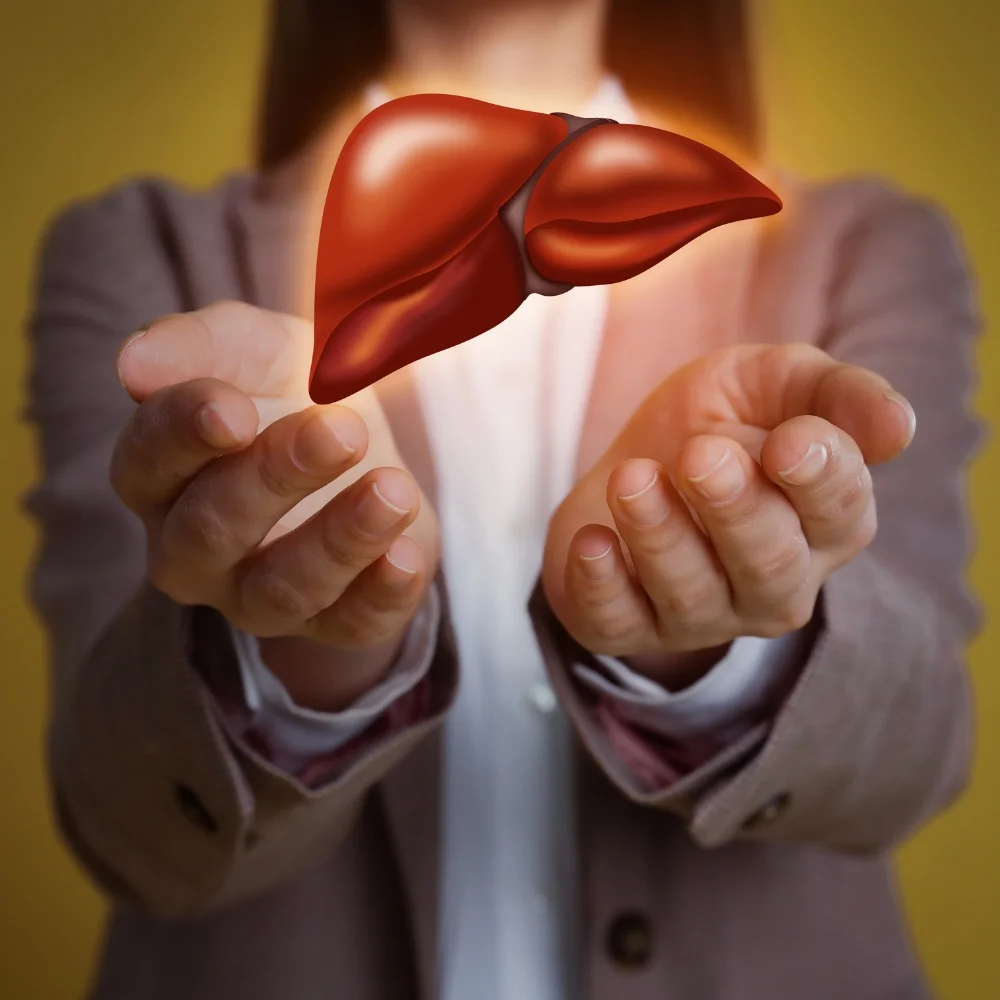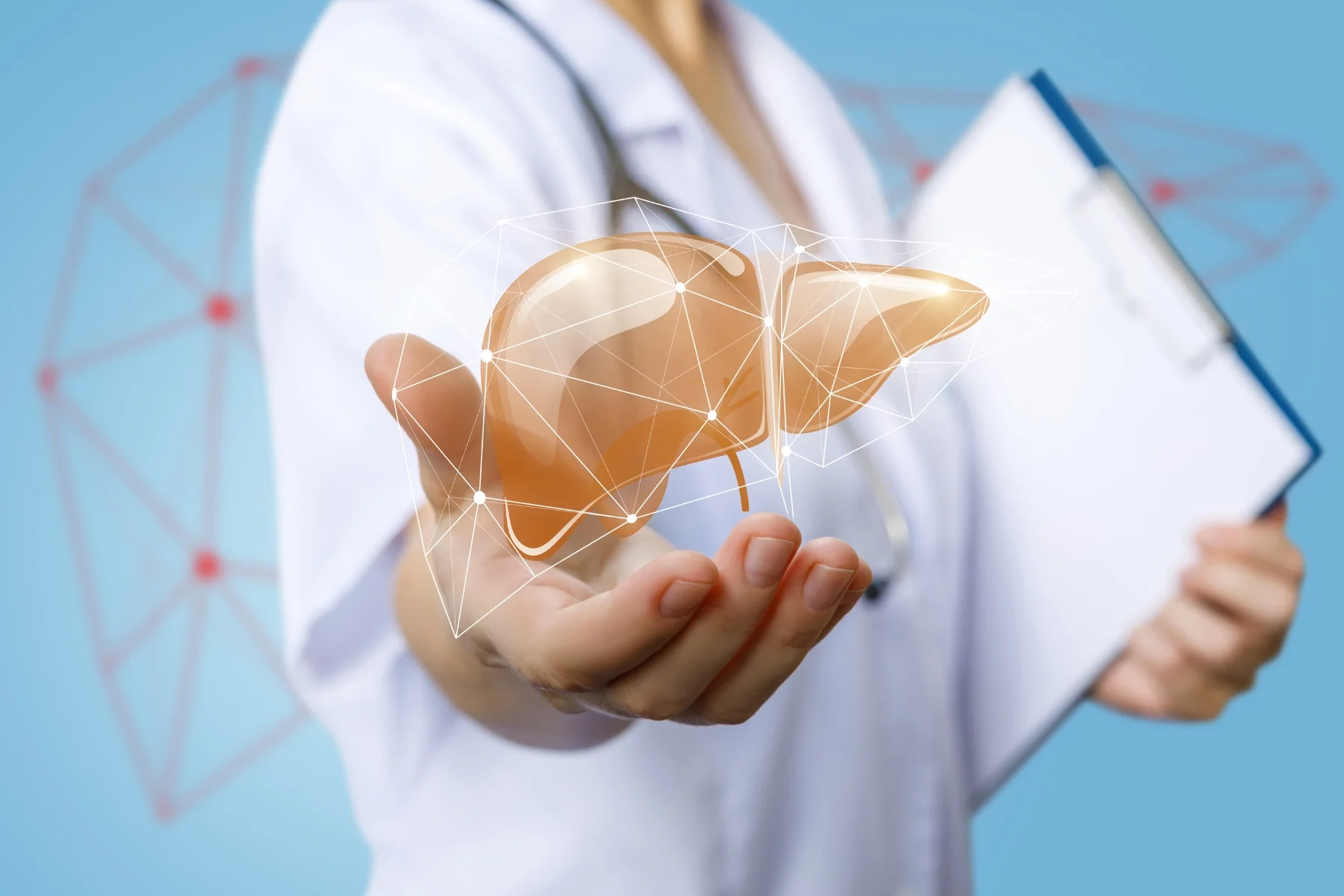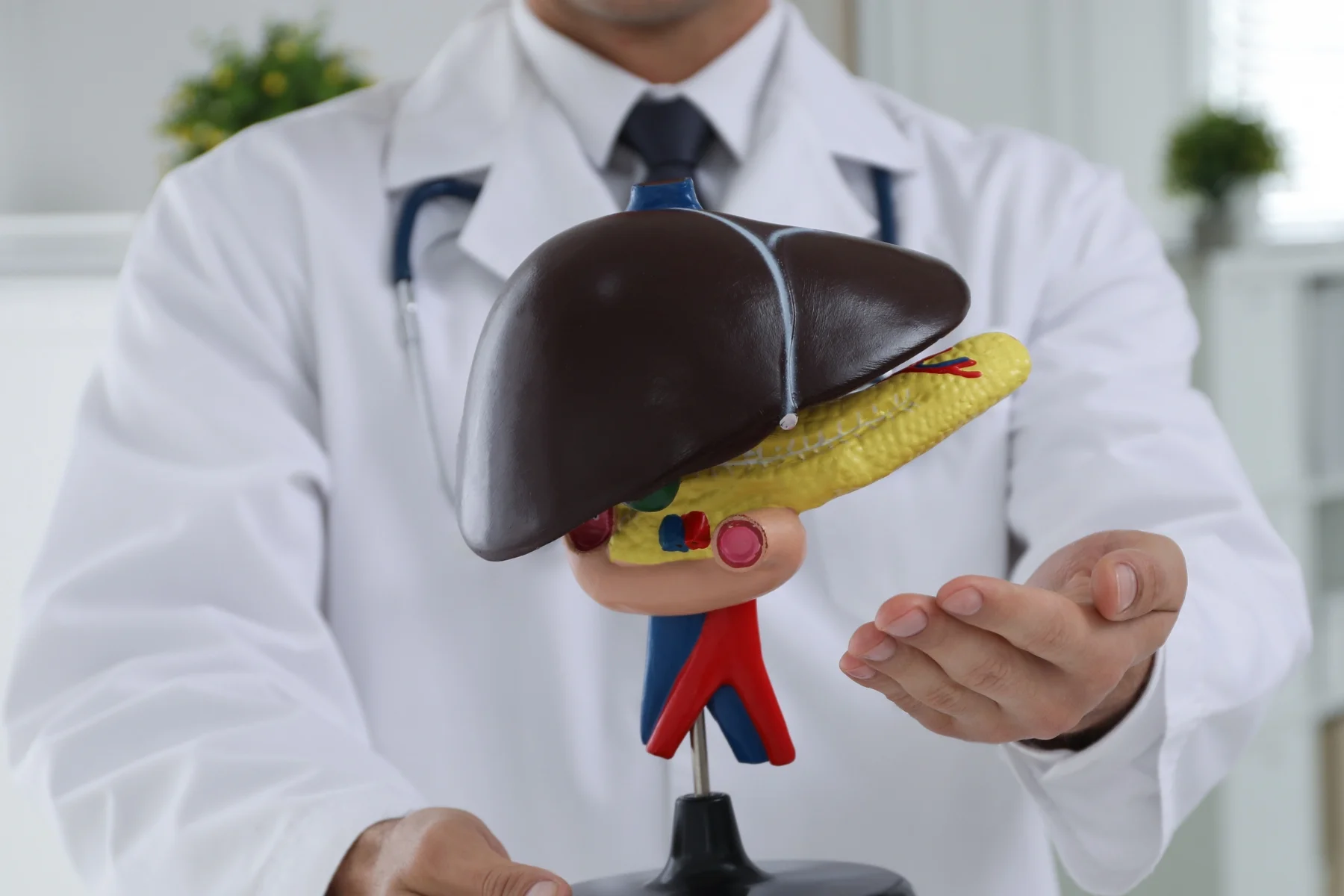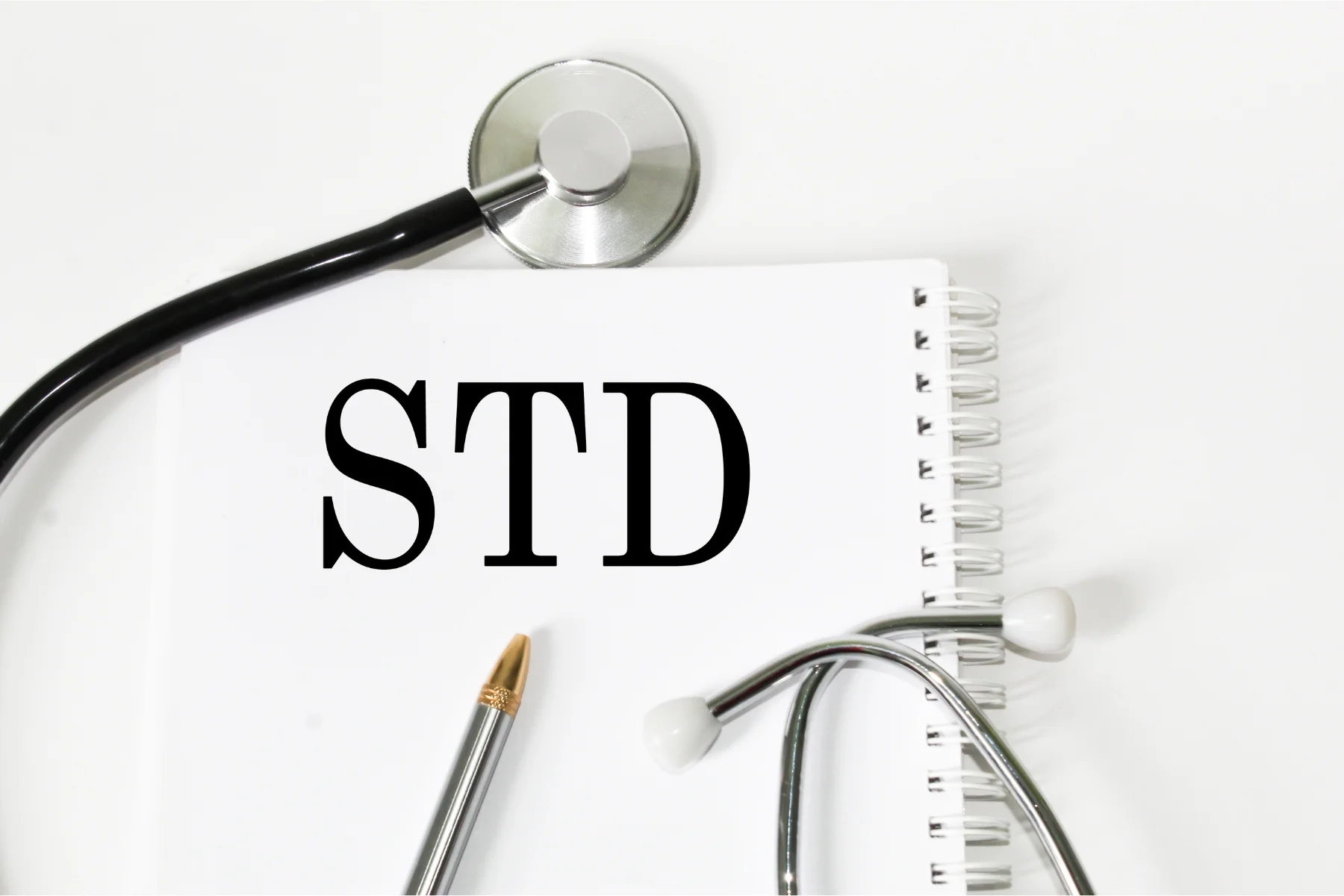Welcome to the ultimate guide to maintaining a healthy liver! Your liver is a vital organ that plays a crucial role in detoxification, digestion, and metabolism. Taking care of your liver is essential for overall well-being, as it can help prevent a wide range of health issues.
In this comprehensive guide, we will explore various strategies and practices to keep your liver in prime condition. From incorporating liver-friendly foods into your diet to avoiding harmful substances, we will provide you with tips backed by scientific research and expert advice.
Maintaining a healthy liver is not just about avoiding alcohol or unhealthy foods. It’s about adopting a holistic approach to your lifestyle, including regular exercise, proper hydration, and stress management techniques. We will delve into each aspect, providing you with practical tips and actionable steps to incorporate into your daily routine.
Whether you are looking to optimize your liver health or are simply curious about its functions, this guide has got you covered. So, let’s dive in and discover the secrets to maintaining a healthy liver for a lifetime of well-being.
Sexually transmitted diseases can affect anyone, regardless of age, gender, or sexual orientation. With the rising number of cases worldwide, it’s crucial to understand the risks, symptoms, and the steps you can take to prevent and manage these infections.
Throughout this guide, we’ll cover a range of common STDs, including chlamydia, gonorrhea, syphilis, herpes, HPV, and HIV/AIDS. We’ll delve into their causes, symptoms, and available treatment options. Additionally, we’ll discuss the importance of regular testing and prevention strategies to safeguard your health and the well-being of your partners.
Remember, knowledge is power when it comes to your sexual health. By understanding STDs, practicing safe sex, and getting regular check-ups, you can take proactive steps to protect yourself and those around you. So, let’s dive in and empower ourselves with the knowledge needed to lead healthy, fulfilling lives.

The importance of a healthy liver
Your liver is a remarkable organ that plays a vital role in maintaining your overall health and well-being. As the largest internal organ in your body, the liver is responsible for a wide range of essential functions, from detoxification and metabolism to bile production and nutrient storage.
A healthy liver is crucial for your body’s ability to process and eliminate toxins, metabolize fats, proteins, and carbohydrates, and regulate hormone levels. When your liver is functioning optimally, it can effectively filter out harmful substances, break down medications, and support the proper digestion and absorption of nutrients.
However, when your liver is compromised or not working at its best, it can lead to a host of health issues, ranging from fatigue and digestive problems to more serious conditions like cirrhosis and liver cancer. Maintaining a healthy liver is therefore crucial for your long-term well-being and quality of life. By understanding the importance of liver health and adopting strategies to support it, you can take proactive steps to safeguard this vital organ and enjoy better overall health.
Functions of the liver
The liver is truly a marvel of nature, with an incredible range of functions that are essential for the proper functioning of your body. Let’s delve deeper into the key roles the liver plays in your overall health and well-being.
One of the liver’s primary functions is detoxification. As the body’s main filtration system, the liver is responsible for breaking down and removing harmful toxins, chemicals, and other waste products from the bloodstream. This includes everything from alcohol and medications to environmental pollutants and byproducts of metabolism. By effectively eliminating these toxins, the liver helps to protect your body from their harmful effects.
In addition to its detoxification role, the liver also plays a crucial part in the digestive process. It produces bile, a fluid that helps to break down fats and aid in the absorption of essential nutrients. The liver also stores and regulates the release of glucose, helping to maintain stable blood sugar levels and support energy production.
Furthermore, the liver is involved in the synthesis of various proteins, including those responsible for blood clotting. It also plays a role in the metabolism of hormones, helping to regulate their levels and ensure proper bodily function. With its diverse range of responsibilities, it’s clear that a healthy liver is essential for maintaining overall health and well-being.
Common liver diseases and conditions
While the liver is a remarkably resilient organ, it can be susceptible to a variety of diseases and conditions that can compromise its function and lead to serious health problems. Understanding the most common liver-related issues is crucial for recognizing the signs and seeking appropriate medical attention.
One of the most well-known liver diseases is hepatitis, which refers to the inflammation of the liver. There are several types of hepatitis, including viral hepatitis (such as hepatitis A, B, C, D, and E), autoimmune hepatitis, and alcoholic hepatitis. These conditions can be caused by viral infections, autoimmune disorders, or excessive alcohol consumption, and they can lead to liver damage, cirrhosis, and even liver failure if left untreated.
Another common liver condition is fatty liver disease, which is characterized by the buildup of fat in the liver. This can be caused by a variety of factors, including obesity, diabetes, high cholesterol, and certain medications. If left unchecked, fatty liver disease can progress to more serious forms of liver disease, such as non-alcoholic steatohepatitis (NASH) and cirrhosis.
Cirrhosis is a chronic liver disease that involves the replacement of healthy liver tissue with scar tissue, which can severely impair the liver’s ability to function. Cirrhosis can be caused by a variety of factors, including chronic alcohol abuse, viral hepatitis, and non-alcoholic fatty liver disease. It is a serious condition that can lead to liver failure and other life-threatening complications if not properly managed.
To prevent the transmission of STDs, it’s essential to practice safe sex. This includes using condoms or dental dams during sexual activity, limiting the number of sexual partners, and avoiding sexual contact with someone who has an active STD. Regular STD testing is also crucial, as it can help identify infections early and prevent the spread of the disease to others.
In addition to practicing safe sex, there are other preventive measures that can help reduce the risk of contracting an STD. For example, the HPV vaccine can protect against certain strains of the human papillomavirus, which can cause genital warts and certain types of cancer. Individuals with a history of intravenous drug use should also consider getting tested for hepatitis C, as this infection can be transmitted through the sharing of needles or other drug paraphernalia.
It’s important to note that some STDs, such as herpes and HPV, can be transmitted even with the use of protection, as they can be spread through skin-to-skin contact. In these cases, regular testing and communication with sexual partners are essential to prevent the spread of the infection.
Symptoms of liver problems
Recognizing the signs and symptoms of liver problems is crucial for seeking timely medical attention and preventing the progression of more serious liver diseases. While some liver conditions may not present obvious symptoms in the early stages, being aware of the common warning signs can help you take proactive steps to address any underlying issues.
One of the most common symptoms of liver problems is fatigue or a general feeling of tiredness. This can be due to the liver’s decreased ability to metabolize nutrients and regulate energy production. If you find yourself constantly feeling fatigued or lacking in energy, it could be a sign that your liver is not functioning optimally.
Another common symptom of liver problems is digestive issues, such as nausea, vomiting, loss of appetite, and abdominal discomfort. This can be attributed to the liver’s role in the digestive process, as well as the buildup of toxins that can disrupt normal gastrointestinal function.
Jaundice, a condition characterized by the yellowing of the skin and the whites of the eyes, is also a telltale sign of liver problems. This occurs when the liver is unable to properly process and eliminate bilirubin, a byproduct of the breakdown of red blood cells. Jaundice can be an indicator of more serious liver conditions, such as hepatitis or cirrhosis.
Risk factors for liver disease
While the liver is a remarkably resilient organ, it can be susceptible to various diseases and conditions that can compromise its function and lead to serious health problems. Understanding the common risk factors for liver disease is crucial for taking proactive steps to protect this vital organ and maintain overall well-being.
One of the primary risk factors for liver disease is excessive alcohol consumption. Chronic alcohol abuse can lead to a range of liver-related issues, including alcoholic fatty liver disease, alcoholic hepatitis, and cirrhosis. The liver is responsible for metabolizing alcohol, and prolonged exposure can result in inflammation, scarring, and ultimately, liver failure.
Viral hepatitis, particularly hepatitis B and C, is another significant risk factor for liver disease. These viral infections can cause inflammation and damage to the liver, potentially leading to more serious conditions like cirrhosis and liver cancer. It’s important to be aware of your hepatitis status and take appropriate preventive measures, such as getting vaccinated and practicing safe sex.
Obesity and type 2 diabetes are also closely linked to the development of non-alcoholic fatty liver disease (NAFLD), a condition characterized by the buildup of fat in the liver. This can progress to more severe forms of liver disease, such as non-alcoholic steatohepatitis (NASH) and cirrhosis, if left untreated. Maintaining a healthy weight, exercising regularly, and managing blood sugar levels are crucial for reducing the risk of NAFLD.
Healthy lifestyle habits for liver health
Maintaining a healthy liver is not just about avoiding harmful substances; it’s about adopting a holistic approach to your overall lifestyle. By incorporating a range of healthy habits into your daily routine, you can support the optimal function of this vital organ and promote long-term well-being.
One of the most important lifestyle factors for liver health is regular exercise. Physical activity helps to improve blood flow, reduce inflammation, and support the liver’s ability to metabolize and eliminate toxins. Aim for at least 30 minutes of moderate-intensity exercise, such as brisk walking, swimming, or cycling, most days of the week.
Proper hydration is also crucial for liver health. The liver relies on adequate fluid intake to function effectively, as it uses water to help flush out toxins and metabolic waste. Aim to drink at least 8 cups (64 ounces) of water per day, and more if you’re physically active or live in a hot climate.
Stress management is another important aspect of maintaining a healthy liver. Chronic stress can take a toll on the liver, as it can lead to the release of inflammatory compounds and disrupt the liver’s ability to perform its essential functions. Practice stress-reducing activities, such as meditation, yoga, or deep breathing exercises, to help support your liver’s well-being.
Foods and nutrients that support liver health
In addition to adopting healthy lifestyle habits, incorporating liver-friendly foods and nutrients into your diet can also play a crucial role in maintaining the health and function of this vital organ. By nourishing your liver with the right nutrients, you can support its ability to detoxify, metabolize, and protect your body from harm.
One of the most important nutrients for liver health is antioxidants. Foods rich in antioxidants, such as berries, leafy greens, and cruciferous vegetables, can help to combat oxidative stress and inflammation in the liver. Antioxidants like vitamin C, vitamin E, and glutathione can help to neutralize harmful free radicals and support the liver’s detoxification processes.
Fiber is another key nutrient for liver health. Soluble fibers, such as those found in oats, chia seeds, and avocados, can help to bind and eliminate toxins and waste products from the body, reducing the burden on the liver. Insoluble fibers, like those in whole grains and vegetables, can also support healthy digestion and promote the elimination of toxins.
Healthy fats, particularly those rich in omega-3 fatty acids, can also be beneficial for the liver. Foods like salmon, walnuts, and flaxseeds contain these anti-inflammatory fats, which can help to reduce liver inflammation and support overall liver function.
Call Vesta Care Now to Begin the Evaluation Process!
Detoxification and liver cleanses
The concept of liver detoxification and “cleanses” has gained significant attention in recent years, with many people seeking ways to support the liver’s natural detoxification processes. While the effectiveness of specific liver cleanse programs is often debated, there are some evidence-based strategies that can help to support the liver’s natural detoxification abilities.
One of the most important aspects of liver detoxification is ensuring adequate hydration. Drinking plenty of water throughout the day can help to flush out toxins and support the liver’s filtration processes. Additionally, consuming water-rich foods, such as fruits and vegetables, can also contribute to overall hydration and support liver health.
Incorporating fiber-rich foods into your diet can also be beneficial for liver detoxification. Soluble fibers, like those found in oats, chia seeds, and berries, can help to bind and eliminate toxins, reducing the burden on the liver. Insoluble fibers, such as those in whole grains and leafy greens, can also promote healthy digestion and elimination, further supporting the liver’s detoxification abilities.
While some liver cleanse programs may claim to provide a “quick fix” for liver health, it’s important to approach these with caution and to focus on long-term, sustainable lifestyle changes that support the liver’s natural detoxification processes. Consulting with a healthcare professional can help you determine the most appropriate and evidence-based strategies for your individual needs.
Explore Your Options with Vesta Care for Affordable Healthcare Solutions!
Liver-friendly recipes and meal ideas
Maintaining a healthy liver is not just about avoiding harmful substances; it’s also about nourishing your body with the right foods and nutrients. By incorporating liver-friendly recipes and meal ideas into your diet, you can support the optimal function of this vital organ and promote overall well-being.
One delicious and liver-supportive dish is a quinoa and vegetable stir-fry. Start by sautéing a variety of colorful vegetables, such as broccoli, bell peppers, and mushrooms, in a small amount of olive oil. Add in a protein source, like grilled chicken or tofu, and finish with a serving of nutrient-dense quinoa. The combination of fiber, antioxidants, and healthy fats in this dish can help to support liver health and promote overall detoxification.
Another liver-friendly option is a baked salmon with roasted asparagus and garlic. Salmon is rich in omega-3 fatty acids, which can help to reduce inflammation and support liver function. Asparagus, on the other hand, is a natural diuretic that can help to flush out toxins and support the liver’s detoxification processes. Roasting the vegetables in a bit of olive oil and garlic adds flavor and additional liver-supporting nutrients.
For a quick and easy snack, consider a smoothie made with liver-friendly ingredients. Blend together spinach or kale, frozen berries, a banana, and a scoop of protein powder. You can also add in a tablespoon of ground flaxseeds or chia seeds for an extra boost of fiber and omega-3s. This nutrient-dense smoothie can provide your liver with the antioxidants, vitamins, and minerals it needs to function at its best.
Contact Vesta Care today to begin the insurance approval process and secure the healthcare services you deserve!
Conclusion: Taking care of your liver for overall health and well-being

In conclusion, maintaining a healthy liver is crucial for your overall health and well-being. As the body’s primary filtration system, the liver plays a vital role in detoxification, metabolism, and a wide range of other essential functions. By understanding the importance of liver health and adopting a holistic approach to supporting it, you can take proactive steps to safeguard this vital organ and enjoy a lifetime of optimal well-being.
From incorporating liver-friendly foods and nutrients into your diet to adopting healthy lifestyle habits, there are numerous strategies you can implement to keep your liver in prime condition. Regular exercise, proper hydration, and effective stress management can all contribute to the liver’s ability to function at its best. Additionally, being mindful of risk factors, such as excessive alcohol consumption and viral hepatitis, can help you take the necessary precautions to prevent the development of liver-related diseases.
Remember, the health of your liver is inextricably linked to your overall well-being. By prioritizing liver health, you can not only reduce your risk of serious health issues but also enjoy improved energy, better digestion, and a stronger immune system. So, make the commitment to taking care of your liver today, and reap the benefits of a lifetime of optimal health and vitality.



